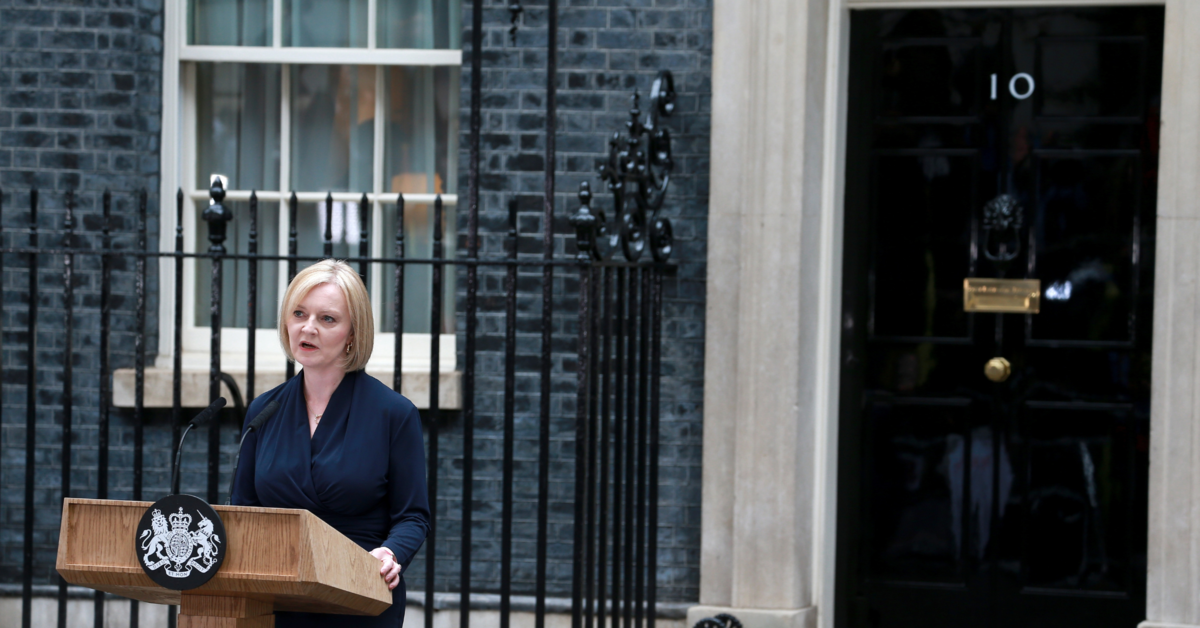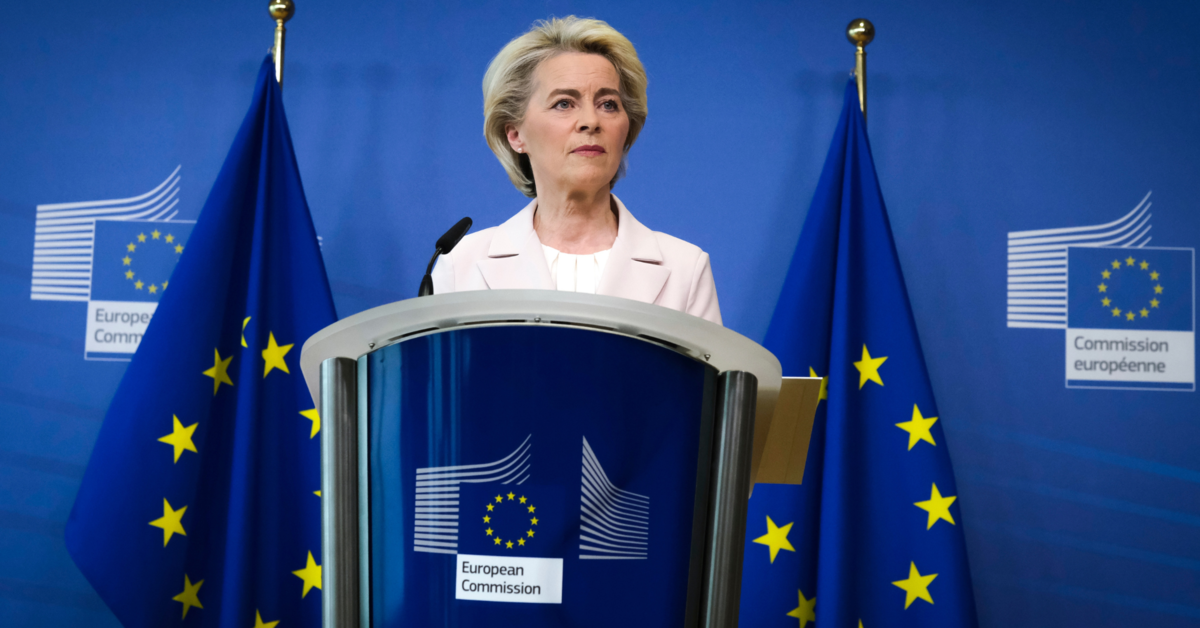Partisan politics in the UK had been put on hold following the death of HM Queen Elizabeth II but the political cycle is now back in full swing. During her leadership campaign, Liz Truss promised economic radicalism and today Chancellor Kwasi Kwarteng delivered just that, presenting a new growth-orientated approach to “break the vicious cycle of stagnation”.
In what was somewhat misleadingly branded as a ‘fiscal statement’ to avoid potentially uncomfortable fiscal projections from the Office for Budgetary Responsibility, one of the UK’s public spending watchdogs, Kwarteng delivered a budget in all but name which departed radically from the established Conservative economic practice of the past twelve years.
Under Boris Johnson, the Conservatives adopted a more interventionist economic strategy with intra-regional ‘levelling-up’ at its core. This approach paid electoral dividends with the capture of the ‘red wall’ in 2019. However, this came at cost of coherence and ideological purity, with many in the party keen to return to a more robust free-market, tax-cutting, agenda.
Aside from the 2.5% annual growth target, the most attention-grabbing aspects were tax cuts – cuts to income tax (including the politically bold decision to scrap the top band for high earners and the cap on bankers’ bonuses), a reversal of the rise in national insurance contributions, a reversal of the rise in corporation tax and significant cuts to stamp duty. Other policies include a review of swathes of EU-derived legislation and other regulatory reform initiatives, curbs on benefits and new rules to check trade unions.
Truss has said she is not afraid of taking “unpopular decisions” and this budget certainly contains many of those, with Labour accusing her of rewarding those who are already wealthy. In essence, Truss and Kwarteng are taking a big gamble that extensive tax cuts and deregulation will fuel growth while increased borrowing can bear the strain of maintaining public services and supporting households and businesses through the energy crisis.
There are also further gambles that inflation can be checked to a sufficient degree so that ordinary voters will feel the benefits of the tax cuts by the time of the next general election and that the improvement in their circumstances will mean they do not resent the more generous tax cuts further up the income scale.
Many of the tax cuts and pro-growth measures will be welcome news to businesses facing higher costs. However, the aggregative impact may still be cause for some concern if borrowing begins to spiral out of control at a time of rising interest rates. Financial markets reacted negatively with five-year UK gilt yields rising by almost half a percentage point to 4.047% - the biggest one-day rise since at least 1991.
Key Announcements
Energy Prices: Reiteration of the household energy price guarantee, which will ensure the typical annual household bill will be £2,500, and the energy Bill Relief Scheme for UK businesses, charities and public sector, which based on recent prices will cost £60bn for its initial six-month period. The Government will also launch an Energy Markets Financing Scheme, ensuring the energy retail sector has the liquidity it needs to operate effectively.
Business Taxation: The planned increase in Corporation Tax will be scrapped, maintaining the current 19% rate from April 2023. The Annual Investment Allowance (AIA), a form of tax relief for British businesses that is designated for the purchase of business equipment, will be permanently set at £1m from April 2023 (reversing the planned cut to £200,000). The Government will also repeal 2017 and 2021 reforms to current IR35 (off-payroll working) rules from 6 April 2023.
Personal Taxation:
- The Government will reverse the temporary 1.25 percentage point increase in National Insurance rates and cancel the Health and Social Care Levy (which will be funded through borrowing instead). This will be effective from 6th November 2022.
- The 1.25 percentage point increase in dividend tax rates will also be reversed from April 2023.
- The planned cut in the basic rate of Income Tax will be brought forward a year, meaning it will fall from 20% to 19% in April 2023. The 45p rate on high earners will be abolished, leaving a single higher rate of 40% for earnings over £50,271 per annum.
- Effective immediately, the threshold above which Stamp Duty must be paid on the purchase of residential properties in England and Northern Ireland will increase from £125,000 to £250,000 while the threshold for relief for first-time buyers will increase from £300,000 to £425,000.
Infrastructure and Investment:
- Investment Zones - The Government will work with the devolved administrations and local partners to introduce Investment Zones across the UK. Full details will follow later, but specific interventions will include a package of temporary tax incentives including 100% relief from business rates on newly occupied business premises.
- Accelerated Development – Designated development sites to deliver growth and housing. Where planning applications are already in progress, they will be streamlined and the Government look at what specific measures are needed to unlock growth.
- Planning and Infrastructure Bill – This will accelerate priority major infrastructure projects across England, by addressing current obstacles including environmental assessments.
Trade Union laws: The Government will introduce legislation to ensure Minimum Service Levels for transport services, to “limit the impact that industrial action can have on the public’s ability to make the journeys that are essential for day-to-day life” and to ensure that “meaningful employer pay offers” are put to employees for a vote, with a view to settling industrial disputes more effectively.
Analysis: Will it work?
There are two linked but separate questions – will the measures announced today achieve the desired effect in terms of unleashing economic growth, and secondly, will they work politically in terms of allowing the Conservatives to win an unprecedented fifth consecutive term in office?
The radicalism of today’s announcements are hard to overstate; while the general direction had been clearly marked out, the extent of the radicalism still surprised many seasoned observers. Today’s measures represent the biggest tax cuts and expansion in borrowing since Anthony Barber’s 1972 ‘dash for growth budget’. It is impossible to imagine any other Conservative Chancellor in recent years, unapologetically pronouncing that it was right that this scale of unfunded expenditure would be met by deficit expansion.
However, this is also exactly the point of a Truss Government. It is a fulfilment of what she had promised Conservative members during the leadership campaign. This is a Prime Minister and Chancellor making good on their commitment to abandon the orthodoxy of the Treasury – ‘the abacus economics’ – of managing the country’s deficit and instead to single-mindedly pursue growth.
As a signifier of their commitment to growth, this is an economic statement which rejects redistributive economics, in favour of pursuing overall growth rates. This is also a statement that abandons previous economic narratives such as George Osborne’s “all in this together”, Theresa May’s “just about managing” or even Boris Johnson’s “levelling up”.
The scale of today’s announcements, potentially around £45bn in tax cuts, is extraordinary and even more so for being announced outside a formal Budget and unaccompanied by any assessment by the OBR. Yet these figures are actually dwarfed by the cost of the energy price guarantee announced by Truss before the death of the Queen. This is estimated at £60bn to £120bn but is actually an open-ended commitment dependent upon future gas prices and that businesses will not need support beyond the next six months.
Key to the success of this gamble in the immediate term is not the public or political reaction but the market reaction. Whilst the pound fell today on the Chancellor’s announcement, markets have not immediately panicked.
Immediate pressure will now, however, fall on the Bank of England, who will be assessing today’s announcement and calculating how far interest rates will need to rise further. The Chancellor has made very clear that he expects the Bank of England to fulfil their obligation to reduce inflation. If interest rates continue to rise substantially, that will represent real political danger for the Government.
Reactions
Mixed reactions from Conservatives
Unsurprisingly, given much of Truss’ thinking and personnel have been drawn from the land of centre-right, free-market think tanks, this is where the statement has landed best with Mark Littlewood of the Institute for Economic Affairs describing it as “a radical set of policies to increase Britain’s prosperity”.
However, the view in the wider Conservative political ecosystem has been more mixed with several supporters of Rishi Sunak and former Ministers such as Mel Stride and John Glen standing up to criticize Kwarteng’s plans in the House of Commons.
Labour practices its lines of attack for the next General Election
Meanwhile, in a clear indication of the dividing lines we can expect to see in the months to come, Shadow Chancellor Rachel Reeves attacked the Chancellor’s statement as a “plan to reward the already wealthy”. Demonstrating what will be a key part of Labour’s attacks on the Prime Minister in the run up to the next General Election, Reeves sought to paint Truss as a significant player in former Conservative Governments, saying that “when she says she wants to break free from the past, she wants to break free from her own failed record”.
Reiterating Labour’s criticism of the Government’s plans on energy bills, Reeves was clear that Labour had won the argument that action was needed, but repeatedly criticised the Government’s intention to fund this through borrowing, arguing that they had “chosen to shield the profits of energy giants and to push all the costs onto Government borrowing to be paid for by taxpayers”.
The Shadow Chancellor repeatedly argued the Government is not delivering for working people, choosing instead to stand up for the already wealthy. By abolishing the top rate of income tax and removing the cap on bankers’ bonuses, the Chancellor has added fuel to Labour’s argument that the Government is failing to stand up for working people.
As the country faces a cost-of-living crisis this winter, policies targeted at higher earners will provide ammunition for Labour’s arguments in the months to come. Reeves argued today that the Conservative Government “cannot solve the cost-of-living crisis… they are the cost-of-living crisis.” We can expect to see much more of this from Labour as it forms a key part of their narrative in the run up to the next General Election.
Independent experts are skeptical
Across the wider community of economic experts the consensus was that the statement represents a big gamble which could backfire. Paul Johnson of the independent Institute for Fiscal Studies tweeted that “This is the biggest tax-cutting event since 1972. [Chancellor Anthony] Barber’s ‘dash for growth’ then ended in disaster. That Budget is now known as the worst of modern times. Genuinely, I hope this one works very much better.”
The centre-left Resolution Foundation emphasised the distributional aspect, noting that “the tax cuts confirmed today largely focus on higher income households, driven by the reversal of the rise in National Insurance and scrapping of the 45p rate of income tax. Someone earning £200,000 will gain £5,220 a year, compared to just £157 for someone earning £20,000.”
The blocking of the OBR forecasts is a theme picked up by many independent experts with the Institute for Government’s Olly Batrum noting that these “would have likely delivered an unwelcome message that contradicts the government’s rosy narrative… overly optimistic thinking is what led to biased Treasury forecasts and the creation of the OBR to begin with.”



